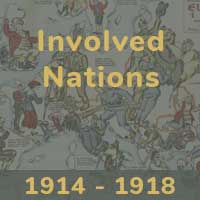PS Magazine, the Preventive Maintenance Monthly (1971 Editions)
The Preventive Maintenance Monthly published 12 editions in 1971. From May 1940 to…
World War I began with a minor assassination in the remote corner of a now forgotten European empire. Yet it was to become the first truly global war, embroiling over 36 countries across 5 continents. As the tide swelled and nation upon nation rallied its forces, much of the world still belonged in the nineteenth century: cavalry officers rode to war on horseback, wearing gaudy uniforms and carrying flashing sabers at their sides. Some even took their servants and households. Military convention had changed little since the days of Wellington and Napoleon. World War I changed all that.
In loving memory of "Jack" & "Lola"
The info here!



